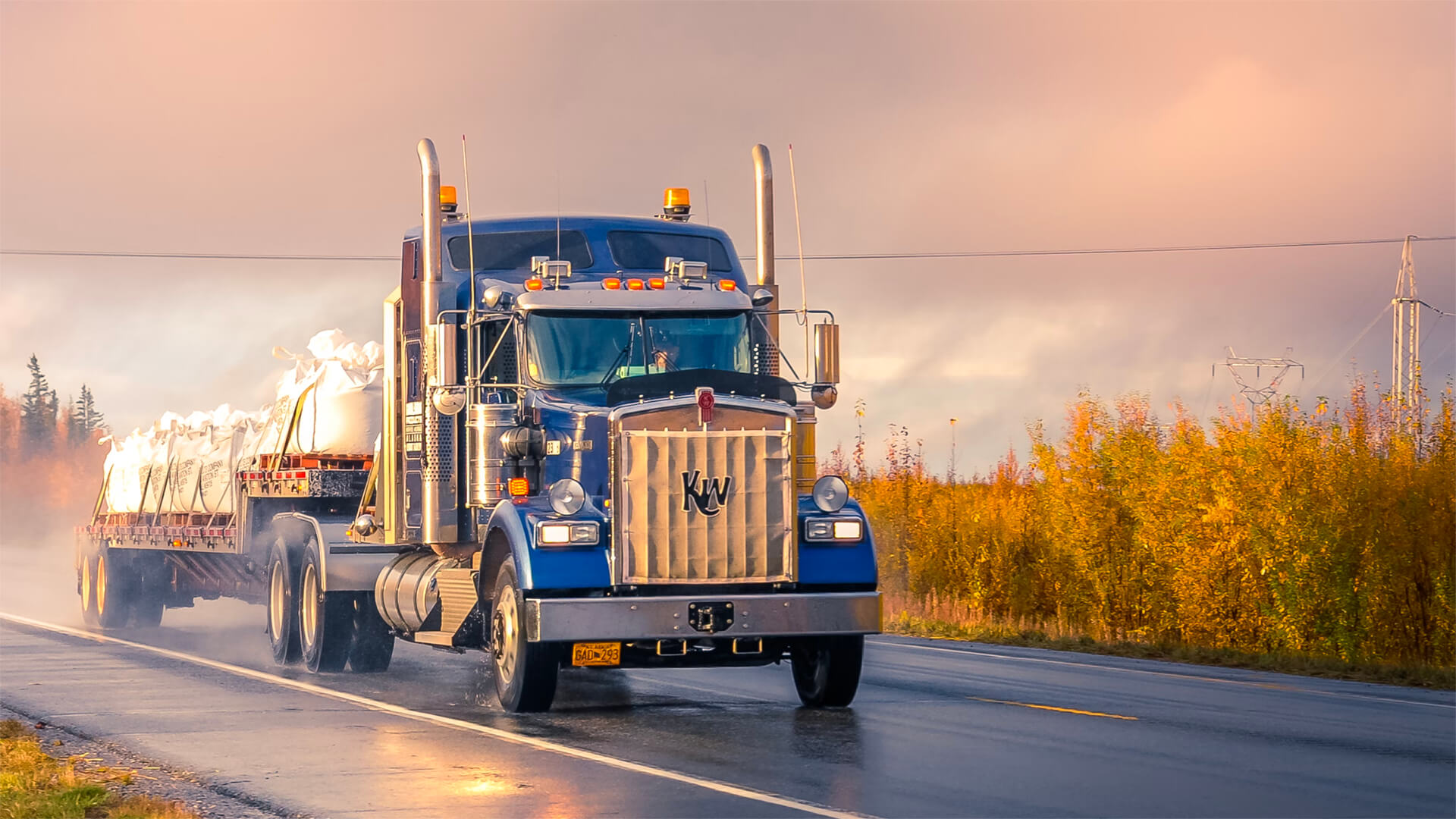As we continue down the path of deglobalization, the US has checked most of the boxes needed to thrive in a disconnected world. Between shifting supply chains and moving manufacturing closer to home, there is still one box that the US hasn’t checked off – processing.
That unchecked processing box just so happens to be the most significant threat to economic security for the US. The US needs to flesh out its processing capabilities in three major areas of concern: industrial materials, agriculture, and oil.
The US must develop processing capabilities and partnerships for materials like lithium, copper and iron ore to support the industrial buildout. To improve food security and avoid famines down the road, finding ways to add value and expand food production close to home will be essential. The US is already a significant oil refiner and exporter, but there is a mismatch in the type of crude produced domestically and what US refineries can process; to reduce import dependency, the US will need to retool its refineries to process domestic crude.
Overcoming these processing challenges will prove crucial for the future of the US and its continued economic security. Regardless of political, ideological, or environmental stance, developing these processing capabilities will allow the US to prop up various industries and avoid catastrophe down the road.
Here at Zeihan On Geopolitics we select a single charity to sponsor. We have two criteria:
First, we look across the world and use our skill sets to identify where the needs are most acute. Second, we look for an institution with preexisting networks for both materials gathering and aid distribution. That way we know every cent of our donation is not simply going directly to where help is needed most, but our donations serve as a force multiplier for a system already in existence. Then we give what we can.
Today, our chosen charity is a group called Medshare, which provides emergency medical services to communities in need, with a very heavy emphasis on locations facing acute crises. Medshare operates right in the thick of it. Until future notice, every cent we earn from every book we sell in every format through every retailer is going to Medshare’s Ukraine fund.
And then there’s you.
Our newsletters and videologues are not only free, they will always be free. We also will never share your contact information with anyone. All we ask is that if you find one of our releases in any way useful, that you make a donation to Medshare. Over one third of Ukraine’s pre-war population has either been forced from their homes, kidnapped and shipped to Russia, or is trying to survive in occupied lands. This is our way to help who we can. Please, join us.
Transcript
Hey everyone. Peter Zeihan here coming to you from the road in Colorado. Yesterday I gave you a quick talk about what I saw as the greatest national security threat to the United States for the next foreseeable future. I’d like to do the same thing now for economic security and in a word, processing. Before I explain what I mean by that, let’s go back a little bit.
The whole idea of globalization is that any product can go anywhere, take advantage of whoever can produce that product, the lowest cost and the highest quality, or at least that’s the theory in practice. As soon as countries realize they can reach into any economic space. They take steps to benefit themselves. Maybe they put in trade restrictions or in the case of processing, maybe they subsidize.
So different countries around the world are throwing a lot of money at making sure that certain industries are headquartered, or at least heavily emphasized in their own places. So Taiwan, Korea, Japan, they do this heavily with semiconductors to the tune of hundreds of billions of dollars of subsidies. The Russians use a lot of the d’etre is from the Soviet system, which used to supply a an empire which now only supplies them.
And, you know, they’re pretty economically backward. So they use all the extra stuff to produce things for export or in the case of the Chinese, in order to ensure mass development and mass employment. They throw basically bottomless supplies of capital at industries, really anything that they think that technologically they can handle. They want to be able to produce and if they can, cornered the market.
What this means is that other countries, United States, are reliant on countries that have put their thumb on the scales in order to participate by anything else. And now the globalization is breaking down. The United States is facing a double threat. Number one, a lot of manufacturing that used to be done here or could be done here or, you know, from an economic efficiency point of view should be done here, is done other places.
And so a lot of that has to be reshore at or near shore to French. Second, none of this works unless you have the processing. If you have iron ore, but you don’t have the processing to turn it into steel, you can’t do construction. If you have silicon, you don’t have the ability to process it in the silicon dioxide.
You can’t play in the semiconductor space and on and on and on. So things kind of fall to three general categories. The first are industrial materials like lithium and copper and iron ore and the rest. The United States in most of these is a bit player in the production and nearly a non-player in the processing. And since the United States is now attempting a mass industrial buildout, it needs to get good at that again.
It needs to make partnerships with the countries that have the raw materials. Australia is at the top of that list. Brazil’s probably close second. And then it needs to work with those countries either to do the processing in them or at home. Now, one of the things that I do like about the Biden administration’s economic policies and there aren’t a lot, is that the Inflation Reduction Act prioritizes this and says that in order to qualify for certain subsidies for things like EVs, the materials that go into them must be processed within a NAFTA country or an ally that is identified by negotiations such as Australia.
So we are moving in the right direction there, but we need to think of a much broader net. So for example, aluminum not only to the Russians and the Chinese dominate about three quarters of aluminum production in the world. Aluminum as a byproduct, generates a lot of trace materials like, say, gallium, which are really useful for solar panels.
Same thing with silver. Silver processing or copper processing generate a lot of the stuff that you need for rare earth metals. All of this stuff needs to be recaptured in some way. Otherwise, the industrial rail building that the United States is attempting really isn’t going to go anywhere. Because if you don’t have the materials to do it in the first place, it’s going to be kind of a pointless endeavor simply to build up what you would need to make them every single day.
That’s number one. Number two is food. The United States is the world’s largest food exporter and is the number one exporter of any number of materials and food products. But we don’t do a lot of the value add as part of those exports. This is missing a lot of really low hanging fruit. And if you look at the world writ large, the same thing that applies to globalization and processing applies to agriculture.
Lots of countries for food security issues, national security issues, protection issues whose have made it very difficult for the United States to export, say, soybean meal. But they still allow the import of soy by expanding the footprint in American agro industry so that we do more of the processing here. Not only do we get a higher value added product, but as global fertilizer markets around the world get problematic, a lot of major food producers are simply going to vanish because most food production outside of certain areas that have been producing it for centuries can only do so with massive applications of fertilizer.
Again, in China is the case in point. The EU’s about five times as much nitrogen fertilizer as the global average. So not only with the United States earn a little bit more money and have more food security. If we did this, we’d also be able to step in and help other places that are suffering from famine more quickly because we’d actually have semi-finished or even finished food products rather than just the raw material.
And then the third one is one that the Biden administration is not going to like to hear about, and that is oil. Oil by itself is useless. It has to be refined into diesel and gasoline and naphtha and the rest. And the United States is the world’s largest oil refiner and the world’s largest exporter of refined product. However, there’s this huge mismatch within the American energy sector.
Back in the seventies, in the eighties, when we were all running out of oil, American refiners became convinced with good reason, that the future of global crudes were very heavy, very sour, very polluted crude streams. And so what they did was they refined the entire American refining complex to run on the crappiest crude you can imagine, stuff that’s just goo or even solid at room temperature.
But then we had the shale revolution. And the shale revolution is different in that the crude that is produced from it is super light and super sweet. So right now, American refiners prefer to import the heavy crap stuff from the white world, leaving the light sweet stuff. We produce ourself available for export. So the smart play here would be to retool or even better expand the American refining complex in order to process not just the crappy stuff in the world, but also the stuff that we produce ourselves.
So we are less dependent upon the inflows and outflows of exports and imports in order to keep our refining complex alive and keep fuel the tanks. And for those of you who are super ultra mega greens, who are convinced that the internal combustion engine is not the way of the future, that’s fine. Consider that the most aggressive, realistic plan.
And it’s not very realistic for getting the EVs on the road and and stopping the production of internal combustion engine vehicles is now before 2040, which means as late as 2050, the majority of the vehicles that are still on the road are still going to be internal combustion. So even in the most aggressive plan, we are still going to need tens of millions of barrels of gasoline and diesel and the rest for decades to come.
If we’re going to avoid an energy shock where the whole system just cuts down. All right. That everything. Yeah, I think that’s everything. So processing it. Lots of processing. Oh, yeah. And even if you don’t buy into the green transition or even climate change, we still need to do this because without the Chinese and the Germans and everyone else in global manufacturing, North America has to at least double the size of its entire industrial plant.
That’s a lot of steel, a lot of aluminum, a lot of copper and all the rest. So really, it doesn’t matter what your ideology is. We don’t have enough of the intermediate stage of process stuff that we need to even attempt to do everything else. So let’s focus on that first and then.








